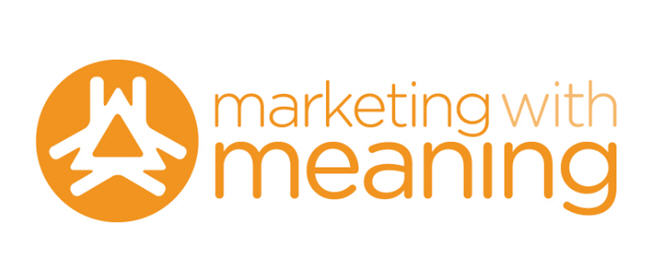“Marketing with meaning”, coined in The Next Evolution of Marketing, can be defined as bringing value to clients (potential and existing) through your marketing tactics. What does this mean for a business? Is offering a product or service enough of a value in itself? Merriam-Webster provides several definitions of the word value: “a fair return or equivalent in goods, services, or money for something exchanged; relative worth, utility or importance; something (as a principle or quality) intrinsically valuable or desirable.” Marketing with meaning is about added value. With today’s bombardment of billboards, commercials, and online pop-up ads, people are being interrupted more frequently with less valuable information. What consumers need and what they perceive they need can be very different, and marketers have long since played off of this.
If you can market in a way that offers an unexpected and appreciated additional service, that will be valued. Does that mean offering a free sample of your product to prove its worth? Is that an article or newsletter sharing information once reserved only for paying customers? Small businesses often have less money to invest in their marketing, but are willing to invest the time. One of the easiest and most cost-efficient ways is by utilizing social media. YoungEntrepreneur blogs are an example of this, as you’re gaining information about topics which may be useful to you, while getting to know authors as people rather than businesses. You’re learning about the writer’s expertise, while not having to invest anything other than time. That in turn can provide the confidence to invest more fully, all with neither party paying a dime. If you’re interesting and engaging, people will read what you have to say. Not only will they read it, but they’ll be eager for it and they’ll share it with others. But, you can’t just say something; you have to say something of value that will bring people back for more. A blog is a great way to start, and it shows your potential clients that you’re knowledgeable about your field.
Next best is the ever-growing world of Facebook. People thrive on being connected; six degrees of separation has never been more true. The greatest thing about Facebook is the viral ability. With the options of “like” and “share”, one person finds out about a local restaurant or hair salon and 5 minutes later, their entire friend list of 500 knows too. Most small businesses aren’t targeting a small niche, but have mass appeal. Appeal to that mass by free publicity. Taking the Facebook status to the next level is Twitter. What’s the allure of typing a single sentence and having people desperate to know your latest update? Who cares if you just had the greatest lunch at the diner down the street, or need to get your carpets cleaned after your kid spilled grape juice. Interestingly enough, small businesses care. By targeting keywords locally (think “carpet” or “lunch in Boston”), you can find potential customers with a click of a button.
There are certainly additional social networking sites, though the first 3 are a great starting point. MySpace seems to have done wonders for up and coming artists, but I don’t know that I’d recommend it for the local electrician. LinkedIn is an excellent networking site, and I encourage you to create a profile so you can connect with old colleagues, new friends, and get your name out there. When it comes to social media, invest the time and go viral. With a blog focusing on your small business specialty, a Facebook page featuring customer testimonials, and a Twitter account advertising your latest deal, you’re well on your way to growing your customer base. The key to marketing success is to add meaning and offer value, and all other things equal, you’ll find yourself strides ahead of your closest competitor.
What’s been your most effective approach to social media, and have you found any success with value-added offerings? We’d love to hear your thoughts.
As written for YoungEntrepreneur, August 16, 2010
